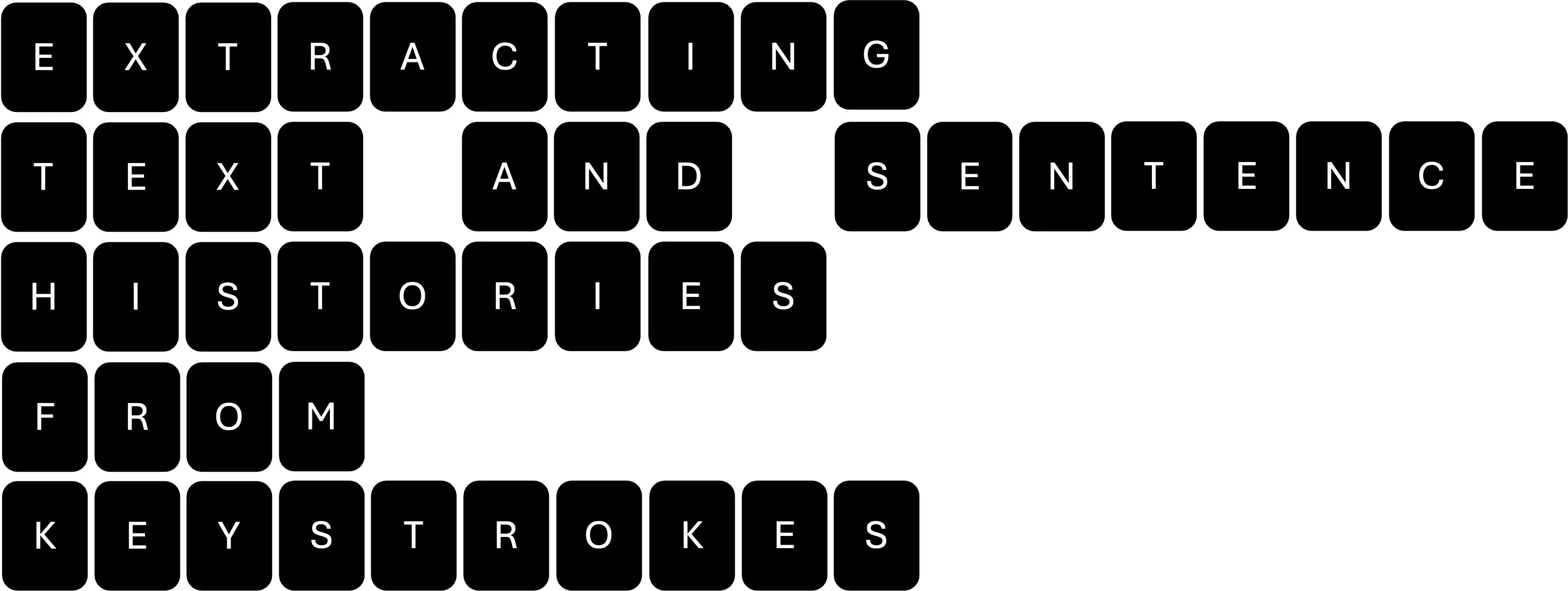Digital Linguistics: Writing Research

In the professorship of Digital Linguistics: Writing Research, we conduct research on the production of written language with and without the support of Artificial Intelligence (AI). We investigate how students and language professionals write and revise texts. This enables us to discover which strategies they use and what support they require. To analyse text production data, we develop digital methods and tools. AI-based methods, among others, enable us to identify linguistic patterns, linguistic structures, and semantic features that characterise this data. With this knowledge, we develop theories and models of the writing process and design new tools to better support writers in the professional world and for society at large. Our findings are made freely available (open access) to the research community and to professionals. We represent the ZHAW at the CLARIN-CH Consortium.
We offer:
- Keynote speeches, inputs, and tailored workshops on topics such as: Generative AI, large language models for writing and teaching, digital skills
- Scientific support and evaluation of teaching/learning projects; design, organisation, and evaluation of focus group discussions
- Services in the areas of copywriting and document design
In focus
Digital literacy in university contexts

In this joint project between swissuniversities, the Zurich University of Applied Sciences (ZHAW), the Zurich University of Teacher Education (PHZH), the Bern University of Applied Sciences (BFH) and the University of Neuchâtel, we are investigating how digital technologies can support the writing process. Artificial intelligence (AI) can help as part of intelligent tutoring or during automated writing assessment processes. We are working to integrate such AI-based technologies into university teaching and advisory services, doing so in a systematic and appropriate manner that allows both students and lecturers to benefit. In performing this work, we make use of and further develop computational linguistics methods.
The Modern Art of Writing: Human-driven versus AI-driven Text Production Processes

This project investigates new writing strategies and best practices for efficient and effective text production. With Generative Artificial Intelligence, the role of writers is changing, and new writing processes require new skills. Adapting to these new conditions, however, is a challenge for professionals, academics and students. Although it is tempting to use text generators to boost the efficiency of the text production process, understanding the changes in the writing process under these new conditions and the impact of new technology is crucial for developing best practices.
THEtool: In-depth Analysis of Writing Processes

THEtool (text history extraction tool) is a freely available software application (open source) for analysing writing processes. It processes all keystrokes of a writing session and thus offers insights into the development of the text. THEtool extracts text versions and provides a visual overview of the text history. THEtool is the first application to systematically reconstruct intermediate versions of all created sentences. This makes it possible to track the development of each sentence in the text, from the initial draft to its final version or complete deletion. THEtool allows researchers to automatically analyse large volumes of writing process data from a linguistic perspective.
Projects
Research-based teaching
We offer various courses in all degree programmes at the School of Applied Linguistics. In modules in the Bachelor’s degree programmes and Master’s degree programme, students learn about theoretical principles, case studies and practical experiences from our projects.
We supervise Bachelor’s and Master’s theses with a focus on text production and corpus-based discourse analysis as well as on topics involving Generative Artificial Intelligence. We also offer internships for students from various disciplines.
We run the CAS in Copywriting: Writing Effectively and Using Generative AI Efficiently (in German). We are also involved in the Generative AI in Teaching and Continuing Education (in German) course, also offered as part of our continuing education programme.


